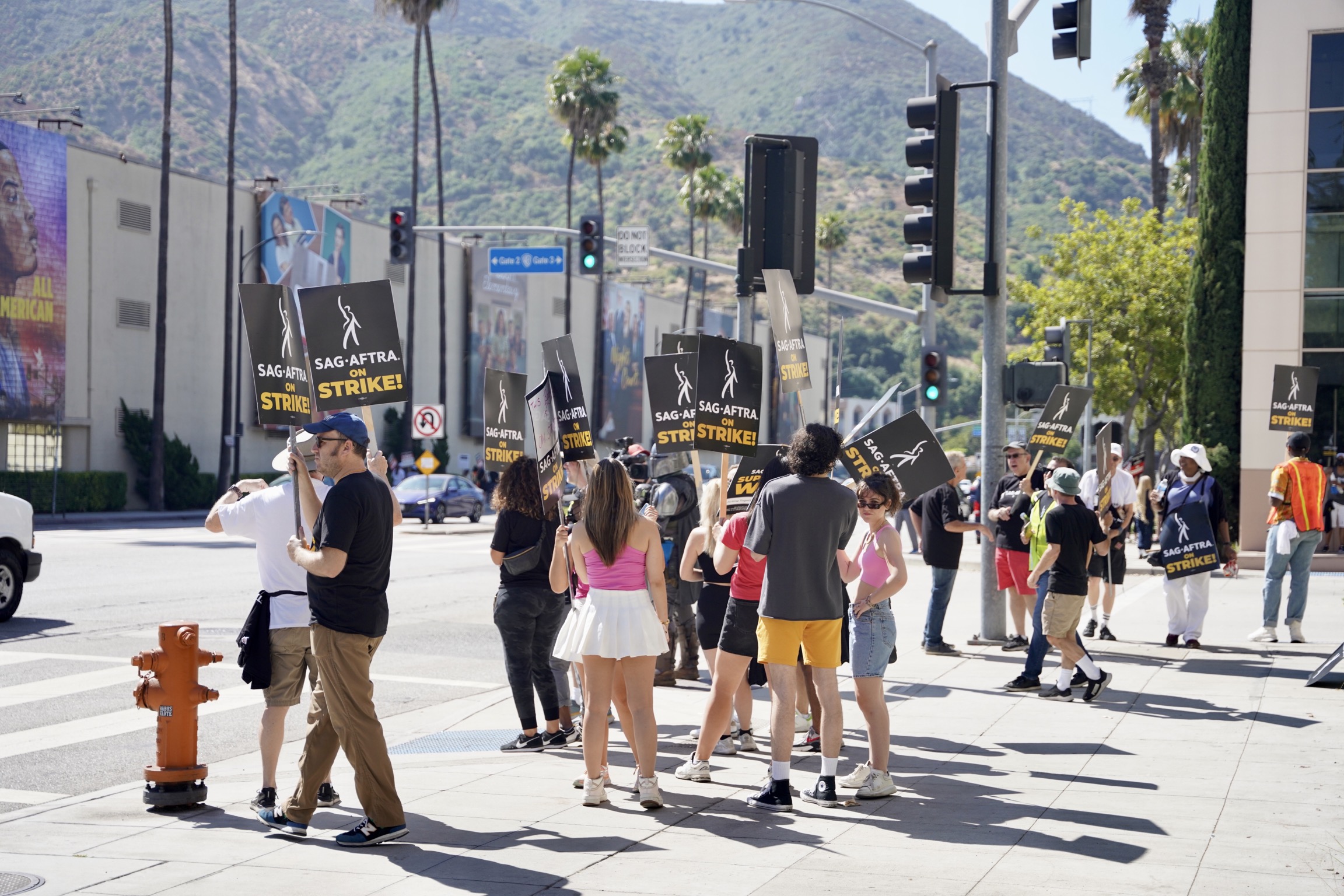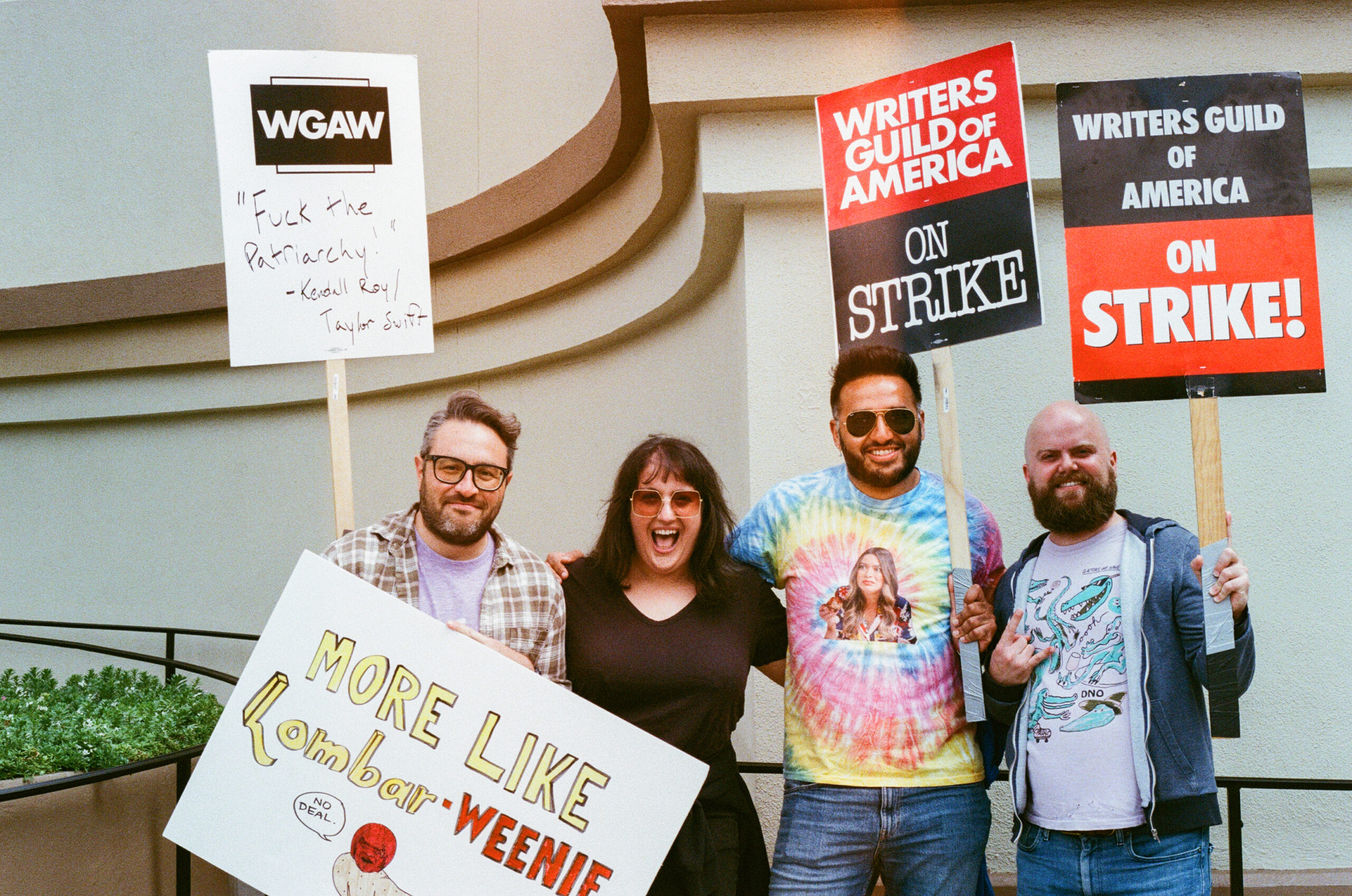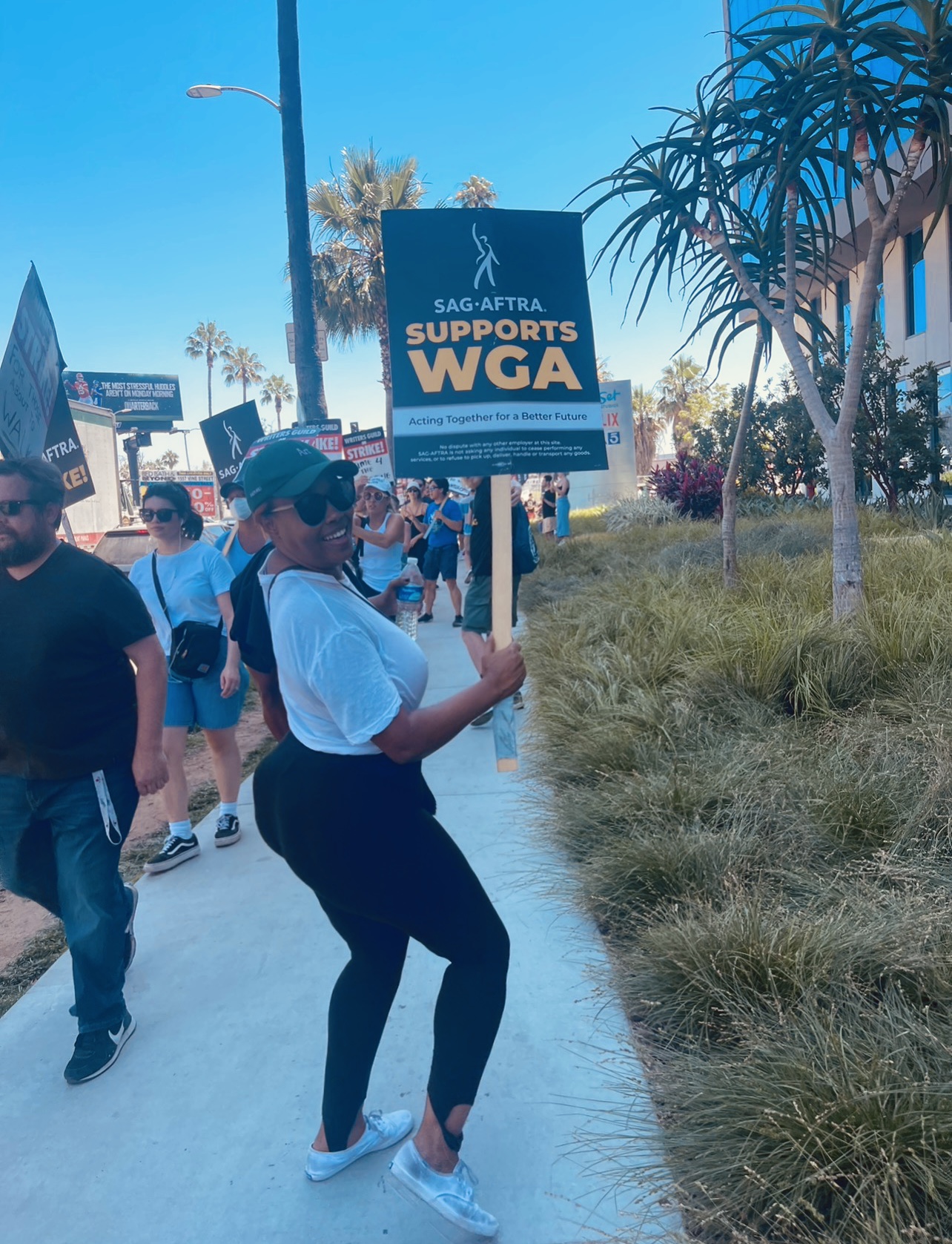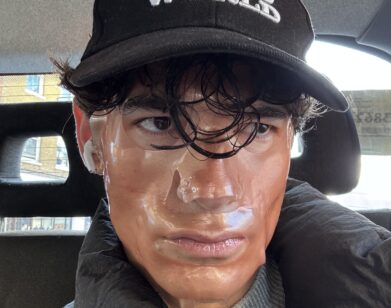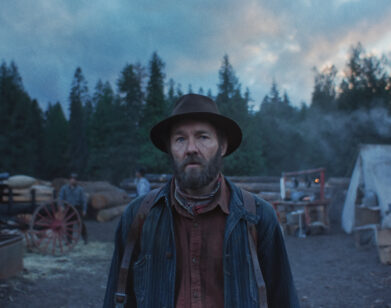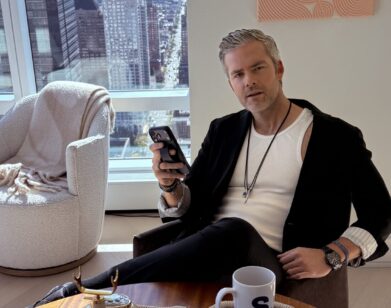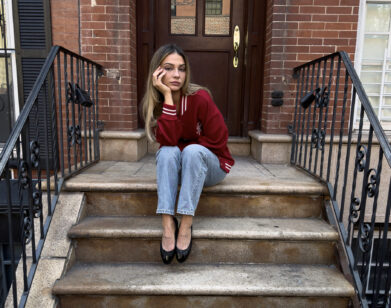STRIKE
“The System Is Quicksand”: SAG and WGA Union Members Tell All
It’s now been almost two weeks since Fran Drescher, in an impassioned and galvanizing speech, announced that members of SAG-AFTRA would join the Writer’s Guild on strike after negotiations between the union and Hollywood studios faltered. “We are being victimized by a very greedy entity,” said the Guild’s president, who was elected to her perch in September of 2021. As a result, film and television productions have halted indefinitely and actors have joined screenwriters on picket lines across the country to demand, among other things, tighter regulations on the use of artificial intelligence and that profits be shared more equitably, since residuals payments have all but disappeared with the advent of streaming.
The morning after the strike was authorized, our very own Jeremy O. Harris texted peers in his SAG and WGA group chats, including Brett Gelman (of Fleabag and Stranger Things), Alex Winter (director of The Youtube Effect), Numa Perrier (director of Jezebel and The Perfect Find), Eliot Glazer (writer on New Girl and Broad City), and Jinkx Monsoon (two-time winner of RuPaul’s Drag Race), to convene a roundtable about the strike, what led to it, and what comes next. Below, the group gets candid about forms of solidarity, the false promise of streaming, and why, contrary to popular opinion, actors and screenwriters are not elites.
———
JEREMY O. HARRIS: How’s everyone feeling and doing? I know some of you guys are WGA as well, so for us it’s been two-and-a-half-months, and for the SAG people it’s been about a week.
ALEX WINTER: First of all, thanks for doing this. One thing that’s been great about the strike is, in the internet age, how it’s helped everyone come together. I’ve been in SAG since 1977. I’m really freakin’ old, so I’ve lived through a lot of strikes. But I’m feeling better because of things like this. I’m DGA, WGA, SAG. I’ve had a lot of projects killed, I had a show air last night that I couldn’t say anything about that I acted in with [Steven] Soderbergh, and it sucks for everybody. And from the AMPTP side, all the news I’m hearing about what’s coming is very bad. So, it helps a lot to be able to convene.
HARRIS: And how have you guys been convening? There have been a lot of pickets, but I know that for many of the writers, people started to make meals together, to do things that we saw happen during COVID.
NUMA PERRIER: I’m across the board: WGA, DGA, and SAG. But what I’ve seen with the actors, instantly they’re going to bring a little pomp and circumstance to what’s going on. I went to a monologue show last night. They’re like, “We must act, and we must convene, and plug into our community,” so I feel like that’s already happening one week out with the actors. And on the writing side, there have been a lot of smaller groups getting together and leaning on each other, as we do going through every season in this town. I’m so happy it’s happening, on the one hand. And then I have all of these murky, sinister feelings about how long it could really go on, and at what point will I not be able to sustain myself and my family? And how ugly is it going to get?
ELIOT GLAZER: That’s the scary part. At least for me, as WGA and SAG, when we first struck, it was such a moment of unity and it really felt like a long time coming. And there was such solidarity. And as time has gone on, the WGA has really kept that momentum going, especially the captains: they just work so hard, and really make it social. The themed pickets has been such a smart way of continuing that momentum. But it’s still impossible to not think along the lines of what you were saying, Numa. There is a horizon there, where you have to start to really contend with the more existential versions of things. For me, Fran’s speech totally reinvigorated me and added that burst of energy that was really necessary to fortify everything and the outrage back into my spirit. And I genuinely think that SAG going on strike will really actively put a chokehold on the executives who are being so nonchalant about it right now. Of course, it takes time, because we need to continue seeing productions halt. But when that happens, I think they’re doomed. I really do. And I think the solidarity among the labor unions is going to continue to strengthen.
JINKX MONSOON: As a drag artist, a trans actor, and someone who’s newer to SAG and on the fringes of Hollywood, we still are making our living primarily through live entertainment. But only in the last few years have drag artists and trans actors made big strides in being taken seriously in Hollywood. So the anxiety right now is, “How long can we not work?” We were just getting our footing, so my fear with young drag artists and trans actors who are just starting out is that there are so many producers out there who will use your naïveté and say, “Everyone else is on strike. Why not use this as a chance to get your foot in the door?” They don’t care that they’re shooting your career in the foot. They’re just trying to create the product. So I’m trying to let all the newer performers and entertainers on the fringes know, “Stand in solidarity right now, because you could take the job now, but if we don’t win this strike, who do you think is going to be replaced by AI first?” The marginalized actors, actors with disabilities, POC actors, trans actors. We cannot risk giving the big studios another tool to use to not hire a wide range of diversity. My fear is that the first thing they would do is scan a bunch of those people in marginalized communities, and then their films can always have representation, whether they’re actually hiring a diverse cast or not.
HARRIS: Personally, I didn’t start acting until I was on a streamer. I don’t understand what a life before might’ve even looked like before, with residuals and things like that. Brett, you’re one of the journeyman actors on this call. How are you feeling?
BRETT GELMAN: Well, when I started getting any semblance of a career, you had studios and you had independent film. And in television, you had major networks and cable. And I started to work in the so-called “golden age” of TV, with The Sopranos, Sex and the City, the whole HBO dynasty. Then other cable networks started to reflect that, and the deal was you made less money working for those networks because you had complete creative control, or much more than you did at the major networks. Then the streamers came in and tricked us into thinking you have the same situation there; you have more options now than just HBO, Showtime, FX, et cetera. And they played into this cynicism against the audience, that they just want to sit at home and watch things. This is not true. So they justified their lack of marketing and their lack of creative support around this cynicism, which was actually a lie. So we started working for these companies thinking we had creative control, and then it just started to decay as they became more competitive and essentially monopolized the options of how to make work in film and television. A lot of people started to become successful in the midst of streaming. For me, I became more successful. So it was hard for me to see how I was still getting screwed in these deals because I had no idea what a phenomenon streaming would be. I mean, this is only 10 years old, guys. This is an opportunity not only to get us rights, and to protect us from being replaced by AI, but to potentially turn the clock back on this industry and take power away from the mega-franchises and the streamers. To say, “You’re not the only game in town.”
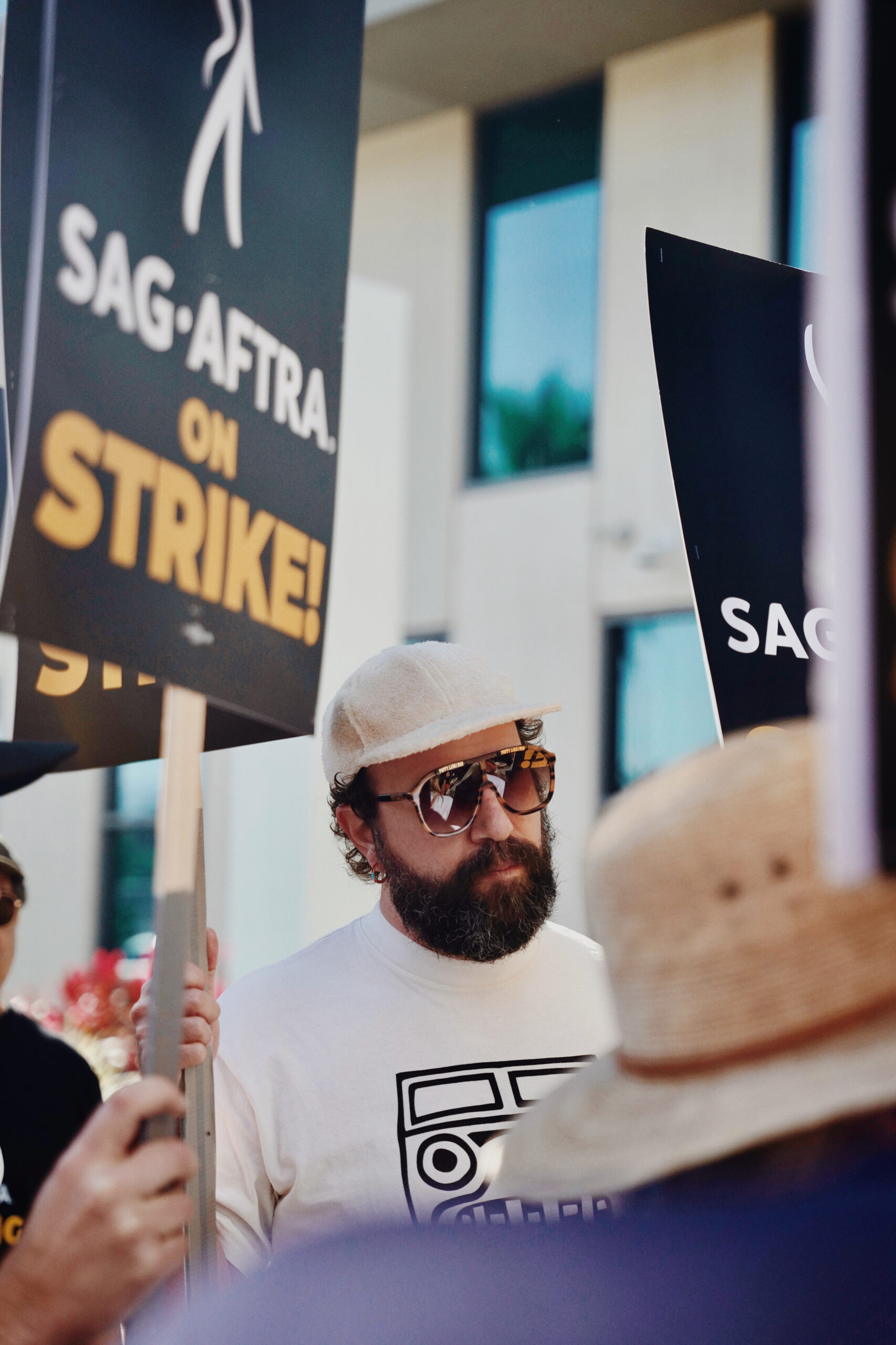
Brett Gelman, photographed by Anton Bondarev (@anton8ondarev)
GLAZER: And who would think that a studio like Netflix would be so conclusively set on not just devaluing actors and writers, but doing so in a systematic way that fuck us over time? I wrote on New Girl, and that was on Fox, and the last season had 22 episodes. But now we are on Netflix and it is a different reality. It was a system put in place so that the rich get richer and the people who create the content that plays over and over and over—and how many times, we don’t know. We really make nothing. And if it were on cable, it would be a different conversation entirely. So I think this is really helping, to have the quiet conversations out loud.
MONSOON: It’s wealth-hoarding.
GELMAN: They’re operating like a tech company. They’re not in show business. I mean, this business has always been filled with tons of sociopaths and ultra-greedy narcissists, but this has trumped the normal levels. Our shows and our films are apps to them. “Yeah, let’s throw it out there and see what the algorithm does.” That is one of the most refreshing things about this strike. It’s like, “No, we are fucking artists. We need to make things.” I think we can all agree, if we could do anything else, we’d do it. This is a reminder of solidarity. “No, we are not fucking microchips in a system. We are bleeding for our work.”
WINTER: I do think that the solidarity has expanded beyond just our industry, which is really vital. We’ve always been viewed as the elites. We’ve always been looked at—and frankly, in a propagandistic way—as sort of separate from the rest of society, which as all of us sitting here know is not true. We struggle to make a living. We struggle for our health insurance. I’ve been in the business since I was nine years old. I’ve been on union health insurance since I was 18. My whole family’s on my union health insurance. I’ll take whatever fucking job I need to keep my health insurance. And finally, because of the expansion of the community, which is largely because of technology, we’re now aligned with the teamsters, with the pending UPS strike. There’s an understanding that these issues are labor issues, and the people getting screwed are not just artists, but all of the workers who don’t have benefits, who don’t have equitable pay, as the money gets consolidated in a handful of oligarchs. To Jinkx’s point, I’m afraid of AI to a degree. But I’m more afraid that, within our industry, there’s a resentment towards the growth of diversity and inclusion, the Me Too era, the openness to LGBTQ people, and I think there’s a concerted effort to clamp back on those initiatives and to recreate an industry that sets the clock back in a worse way, right? How many times do I hear in corridors, people on the studio side complaining about how “this Me Too thing has gone too far, these diversity issues have gone too far.” It’s scary, because that’s the whisper discourse. The realignment of power that comes out of these strikes could be existential in many ways that I think are scary. Frankly, I’m hoping the AMPTP implodes, and that the division within their own ranks makes them come back to the table.
GLAZER: For the first time I can think of with major labor issues, the big bads have a face. You see signs that have Bob Iger’s name on them, or Ted Sarandos, because those people are also now celebrities. How do you guys imagine they’re going to navigate this newfound celebrity that many people inside, people like Fran Drescher, are accustomed to?
GELMAN: Poorly. Unfortunately, these people don’t see that it works for them in the end. If they treat their workers well, they will have happier people who will be making a better product, which will ultimately make them more money, you know?
MONSOON: I think social media and the pandemic has changed everything. It has put so much more power into the hands of the artists. It used to be that a show had to come out every Friday and then an article had to be written about it, and that’s how people talked about the show. Now, we are sharing information immediately. We smell bullshit immediately. We call it out immediately. The pandemic taught us just how much we are being lied to in every fucking direction, and it put the importance on our communication with each other. We crave authentic stories. We don’t want the white-washed, straight-washed, cis-washed story anymore. Look at the Barbie movie. There’s one trans actor for 73 cis actors. I personally haven’t ever seen a show that wasn’t about trans or queer issues that featured more than one trans actor. They’re very much treating actors like, “Let’s have one of these and one of these and one of these to keep people off our back.” But now that we have places to direct our frustration, and I hope they realize how much public opinion weighs in this. If you want those audiences to come to your productions, you have to treat us with respect.
GLAZER: My mom’s grasp of tech has always been totally baffling, but she sent me the video of David Zaslav being booed at Boston University. Of course, she sent it weeks late, if she’s seeing this and sending it to me, that is still such a sign of her being able to, like you said, put a comic book villain’s face to exactly what’s going on. It’s making it so understandable, and it’s really reverberating with not just people in labor, but people who are really, truly finally understanding the wealth-hoarding, like Jinkx said, and the disparity between the working class and the rich.
GELMAN: Absolutely. I mean, as soon as representation started to get a little better in this industry, I’d be on set with a guy like me and they’d be like, “We’re becoming marginalized.” I was like, “What? No, it’s not close to that. It’s not close to equal representation, let alone us being marginalized.”
HARRIS: To your earlier point, thinking about the existential crisis of just the next week or the next month, I take care of not just myself, but my family in Virginia. I am the sole breadwinner for my whole family. I have had to go to every other type of labor I have to keep my promise to send my niece to camp this summer. I have to figure out a new way to write copy for some fashion thing in order to not actually scab inside the world of the things that make the money.
PERRIER: Yeah. I’m sitting here listening to everyone and just really relating, especially about having your whole family on your insurance. I wouldn’t just lose my insurance. My kids would lose it. Our entire family would lose it. I’ve really sat on both sides of this. I used to run a micro-budget, independent streamer directed to Black millennials. I did that for about eight years. We were able to sustain ourselves just going direct-to-audience. As the need grew, all of the corporate entities came crashing down on us. “You guys have to be a SAG signatory now, you guys have to do this,” all of these things that were so out of reach for such a small, family-bred, niche company. So there’ve been a lot of conversations about how we can do things outside of this system, but the system is a sinkhole. The system is quicksand. We’re all in it. And to your point, Jinkx, about how we smell the bullshit: we smell the bullshit of a $40 million movie being classified as independent. There are a lot of conversations about what is truly independent, how we can form things outside of the system or within the system that feel truly independent where we could make a living. It’s just such a tangled web to really sustain something that’s truly indie and eat off of your art, which is what we all want and need to do.
MONSOON: The moment I started talking about the strike, people were calling me a hypocrite because I’m still on tour with my live show. So I just want to say, lots of actors are going to be returning to stand-up. You mentioned a monologue night. We’re going to see an increase in people creating their own work. I’ve been creating my own work for the last decade because there just wasn’t work for me. Me and my collaborator, BenDeLaCreme, created a streaming Christmas holiday film that got picked up by Hulu. We created that fully out of our own pocket, knowing we were probably not going to see potentially any profit from it. We’re not in the black with that. We created it because we wanted to put it out into the world. As you mentioned, Numa, there’s very few mainstream independent projects like that. So if you see a TV actor that you love who’s doing stand-up, or if you see a film actor that you love on Broadway, go support the live theater. The business model is completely different. It’s flawed in its own way, of course, but that’s not on strike right now. Withdraw your attention from the big studios for a moment. Look up the independent work that your favorite artists have created themselves. And again, support live theater because that is going to be a lot of actors’ side hustles now. And it’s a great way to show where the numbers go. The numbers follow the talent. Yes, Disney is an institution, but Netflix, you’re not even older than half the actors you’re exploiting.
GELMAN: Rather than looking at the addiction to social media as just an addiction, it’s also about wanting to hear people’s voices, an unfiltered vision from people. So the whole thing that we’ve been hearing is, “Just stay at home and watch the thing on the TV and don’t go out and look at your phone and be soothed with more binge-watching.” This is not what people want. I was told the other day that things are really booming for live comedy, for touring comedians. This means that people want to leave the house. People will go see Barbie and Oppenheimer this week because it was marketed as something that you needed to go see in a theater. And it feels exciting.
HARRIS: Great independent films. [Laughs]
GELMAN: Yeah, I get mistaken with those and with Cassavetes movies. [Laughs]. But to what you’re both saying, it’s a great opportunity right now for us to strengthen our sense of community and start to strategize, for independent artists to be forming and organizing in the same way that podcasters are doing on Patreon. Why can we not do that with independent film, you know? Like Numa, who I love and respect so much. It was an honor to work with you and it would’ve been good if more people backed you up with that, if that got more support. Because we’re all guilty of running to the money. And Alex, you’ve been a constant source of inspiration, man. I’m such a huge fan of everybody on this Zoom.
MONSOON: Me, too.
GELMAN: Jinx, I have to tell you, I’m freaking out that you’re on this Zoom right now.
MONSOON: I just want to take a moment to thank you all for letting me be a part of this conversation. I very much feel on the fringes of this strike because my acting work on film and TV and in voiceover is very minimal compared to any of you. And I’m not part of the Writer’s Guild. But my main objective here is to make sure that even if I’m only working sparsely, I’m not getting exploited up the ass. I don’t accept exploitation in live entertainment and I won’t accept it in film and TV. And I’ve put up with it because it’s the only option as a budding artist. But if I can help it, I’m not going to.
HARRIS: You presaged my final question, which is, what can artists do in this moment? Whether it’s doing a play or getting on TikTok Live and saying, “Ice cream, good good” for the next seven months to prove that we have audiences outside of the studios, then that’s what we need to be doing. And also, what is everyone doing right now for self-care?
MONSOON: Video games and weed.
PERRIER: Gummies and long showers.
WINTER: Meditation and screaming into my pillow.
GLAZER: My dog has been over-hugged. He’s exhausted by me.
GELMAN: I’m just taking comfort in the fact that I’ve always been addicted to anxiety. This is no different.
HARRIS: This is the first weekend I’m off and I am going to go dancing at a bunch of gay clubs.

